Broadcast Signal Intrusion, Coming Home In The Dark
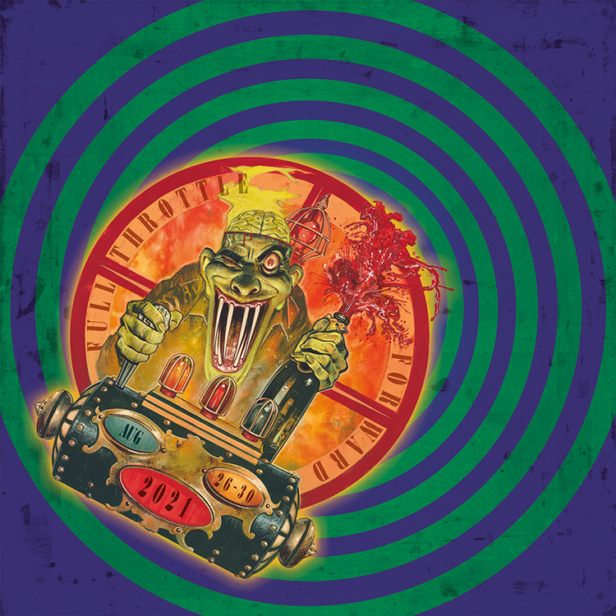
Day 2, and what an attractive double bill we have in store. Unlike some other online film festivals, FrightFest has synchronous screenings meaning movies will go up against each other and you won’t see everything. For some, this is a point of frustration – especially in the event of minor tech issues. Though what it’s great for is capturing the dynamic feel of the in-person event, and meaning that everyone’s FrightFest experience is a bit different. Sometimes, tough choices have to be made, but as the first movie starts I’m pretty darn optimistic about mine. We begin with…
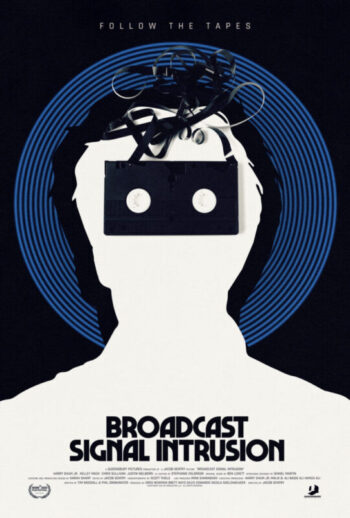
BROADCAST SIGNAL INTRUSION
Directed by Jacob Gentry
One of the ones I was most looking forward to from the synopses. Broadcast Signal Intrusion extends an old short film submitted in 2016 for the FrightFest New Blood initiative. Coming from British writing duo Tim Woodall and Phil Drinkwater, it’s a late 90s set story following a bereaved video archivist, James, whose wife went missing three years ago. Amidst his mutual feelings of despair and denial, he comes across a series of spooky pirate broadcasts from over a decade prior. These consist of people in white masks, mostly standing still, on something that looks like a bedroom set. It’s a puzzle to be solved and potentially a means by which he can translate his uncertainty and guilt about his wife’s fate into a quest for justice. So he leaps headfirst down the rabbit hole, finding what appears to be an intricate conspiracy. As one character says, grief can be a “tricky thing”.
Aesthetically, this is among the most exciting movies of the year. From the tech-noir visuals that recall the brilliant Mr Robot, to the ominous videos at its centre (the creepiest this side of Sinister), this is a real mood piece. It’s helped along immensely by the score, which plays almost constantly and consists of jazz horns that sound like the less structured part of Miles Davis’ career. Combined, these help Gentry brilliantly capture the feel of old paranoia thrillers, building up anxiety about what’s to come that counters the occasion drop in momentum storywise. Unfortunately, some of the steps to James’ investigation are a little longwinded, and you’re not necessarily going to be satisfied with the answer we get. Side characters you think will be important also end up inconsequential – particularly frustrating when it looks like he may have a connection with one, and we see what he could have if he quit.
But there’ll always be something new for James to find, and nobody is going to be able to pull him away from finding it. What really impressed me is how well his character journey is worked into the action – though in some ways it’s as weird as The Show, it’s also far more emotionally real. This is helped immensely by a raw performance from Harry Shum Jr who channels his hurt into every scene – particularly where he interacts with other people. The standout is a quiet chat in a pub with a girl who has been stalking him. As per its subject matter, grief, there isn’t necessarily a moment of catharsis, and all too often, James seems to start from zero. We’re not going to get a neat closure. But from an audience perspective, that’s ok – in the world created, anything else would seem disingenuous. What we do get, though, is a mesmerising, immersive movie experience
Rating: 




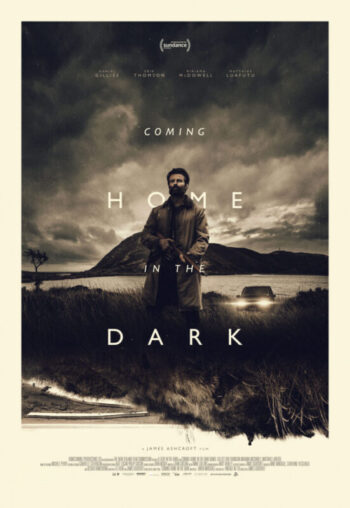
COMING HOME IN THE DARK
Directed by James Ashcroft
A nasty little road movie from New Zealand, and an early contender for the most horrific (though not scary) film of the festival. James Ashcroft’s movie follows the middle-class Hoaganraad family on a road trip to the countryside. In the back, the kids bicker – or at least the badly-behaved one tries to noise up the quiet one. But these will be fond memories compared to what’s to come. As they enjoy the wilderness, the family are accosted by a pair of young gun-wielding drifters: Mandrake and Tubs. An act of extreme violence later, and the family are held hostage for a car journey into patriarch Hoaggie’s past. This tragic meeting may not have been a coincidence after all.
I don’t want to say anything more about the plot – this is not a story-driven film, and I’m intentionally withholding what surprises there are. Instead, this is about the characters and the sheer terror of what they’ve got themselves in for. It’s nothing supernatural, and the scale stays small. Yet as a look human evil, Coming Home in the Dark is as unsettling as they come. What motivates this evil? There’s an attempt to ask the nature vs nurture question here, and we’re asked to consider Hoagie’s complicity. But what’s far more important than the precise reason they turned out this way is that Mandrake, and to a lesser extent Tubs, fully believe they are in the right. At first, I thought Hoagie’s part in their suffering seemed a bit watered down – as if the writers were worried about putting the audience of him. Then I realised that’s probably the point: his two captors are grabbing at straws, trying to find a way of reckoning with their own trauma. If they haven’t done this several times already. The presentation is very frank, with a matter of fact approach to the violence. We don’t get close-ups and slow-mo etc. – just moments of stark ugliness.
The understatedness adds to the intense, pressure-cooker atmosphere. It’s compulsive, sometimes solemn, viewing. We fully believe the family can be offed at any moment and that their deaths are if anything. inevitable. The soundtrack is mostly echoes – a reminder that what goes around comes around? Perhaps – as Mandrake says, with storytelling, it’s the details which matter. On that, towards the end, the plotting does meander – and as it should be reaching its thrilling climax, it loses something. I suspect this comes from the handful of escape attempts drawing things out a bit. Though on the plus side, it’s good to see people held captive fighting back, and it reinforces the graveness of their situation. The performances are all strong across the board. Erik Thomson, as Hoagie, unravels as the night goes on. And no wonder: Daniel Gillies is intimidating as hell as Mandrake. From his cold response early on, during the moment we as viewers learn he’s not fucking around, he establishes a sense of menace that he never loses. There are some chinks in his armour, though, mostly where we see his concern for Tubs. And while I thought the few flashbacks were unnecessary, as this is not otherwise a perspective piece, they reinforce that what’s happened is a terrible waste of multiple lives – including his. Though thankfully it’s far from a waste of time.
Rating: 






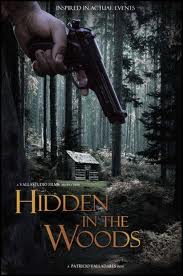
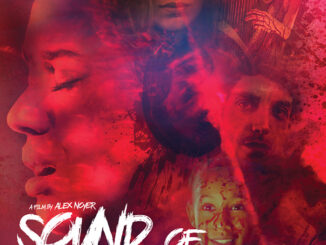
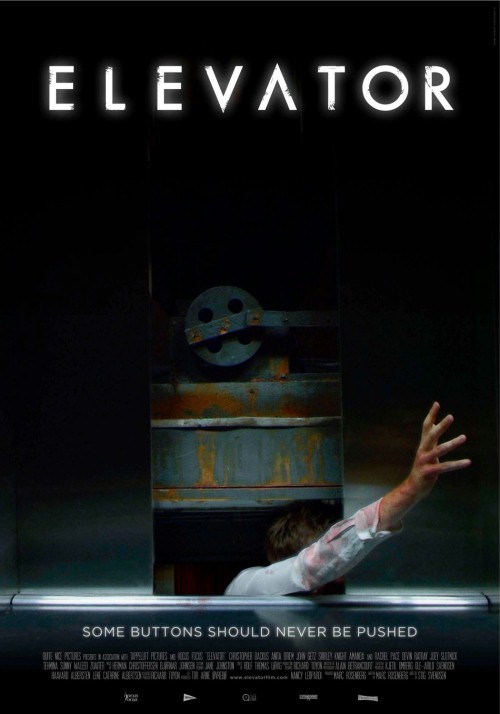
Be the first to comment